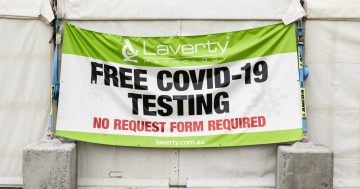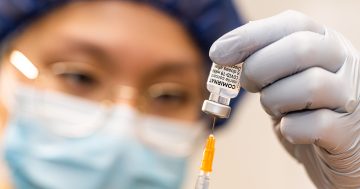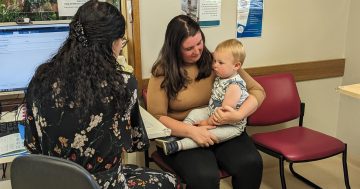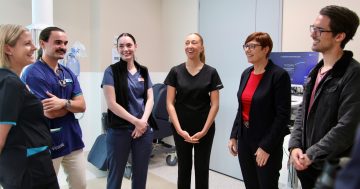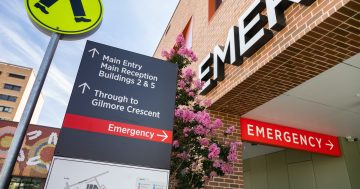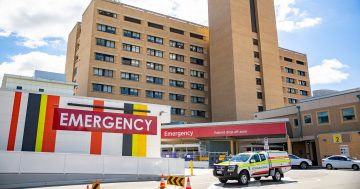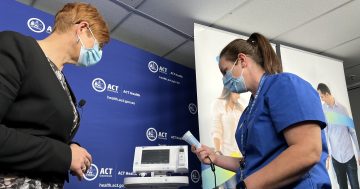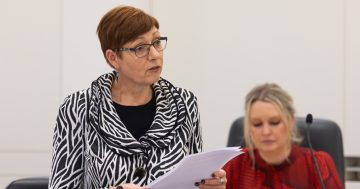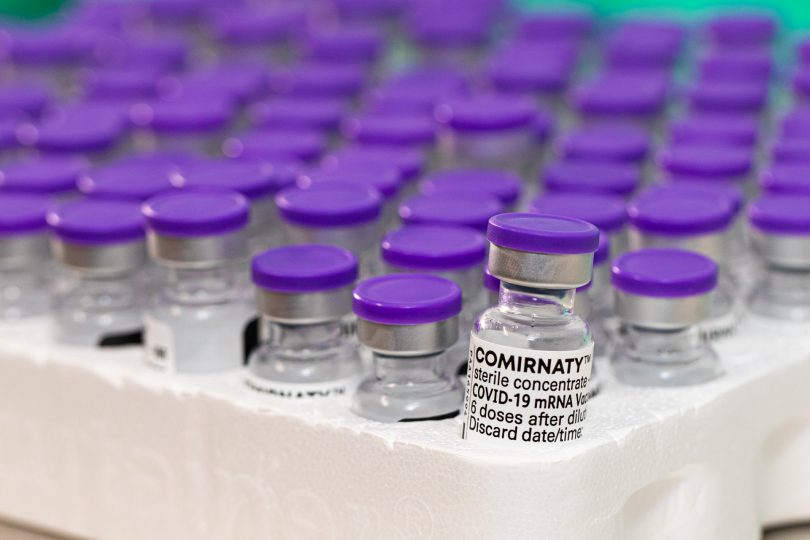
Around 10 per cent of ACT vaccines are being administered to residents of NSW. Photo: Michelle Kroll.
Health Minister Rachel Stephen-Smith will keep the ACT’s Pfizer stocks in the Territory, despite pleas from NSW for more supply to help curb its growing outbreak.
Ms Stephen-Smith confirmed the government’s position on Monday morning (26 July), the same day the Territory is ramping up the rollout of Pfizer with an additional 4000 jabs of the vaccine being administered across government-run facilities this week.
Half of these additional appointments will be reserved for healthcare, residential aged care and residential disability care workers.
Around 14,000 Pfizer doses will be administered across the Garran and Airport Pfizer hubs each week. This is expected to increase to between 15,000 and 16,700 doses a week from September.
Last week, Ms Stephen-Smith said the ACT Government was currently vaccinating a large number of regional NSW residents, with an estimated 10 per cent of jabs going to people who live in NSW.
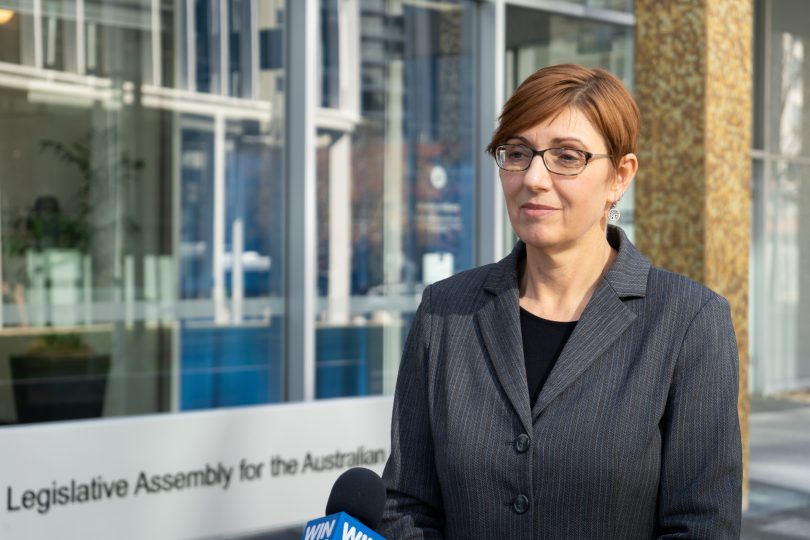
Health Minister Rachel Stephen-Smith. Photo: Dominic Giannini.
According to ACT Health, as of 21 July, 43 per cent of residents have received one dose and 19 per cent were fully vaccinated.
NSW Chief Health Officer Dr Kerry Chant said higher vaccination rates were needed in conjunction with the lockdown to help curb the spread of the delta variant.
“We need a very, very tight lockdown to get those numbers down and we need to do more. We also need vaccination,” Dr Chant said on Monday as the state recorded 145 new cases of locally acquired cases.
“Data is showing us we have too many people infectious in the community.”
Of the 145 new cases, 51 people were in the community throughout their infectious period, 25 cases were in isolation for part of their infectious period and the isolation status of 11 cases are under investigation.
There are currently 156 people in NSW hospitals with the virus, of whom 44 are in intensive care and 18 are on ventilators.












